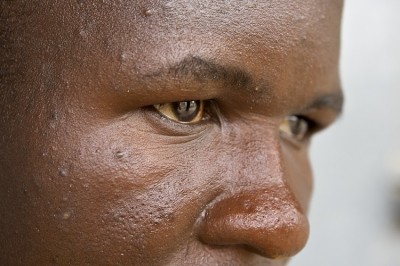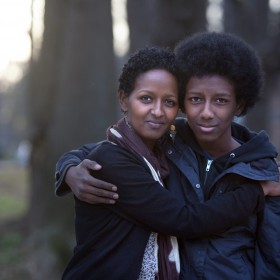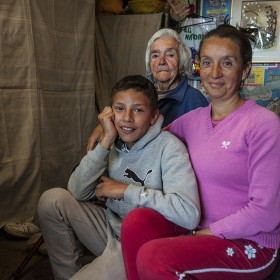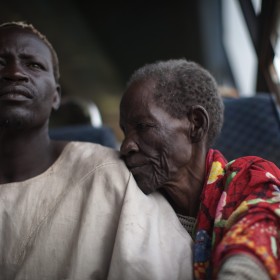Mohamed’s Story, Nigeria

Photo by: H. Caux/2014.
I am from Maiduguri, in Borno State, in the northeast of Nigeria. I left my home in March 2014 due to the constant attacks in my neighbourhood and because I could not work anymore or make a living. I drive a taxi, but I no longer had clients anymore.
Insurgents enter people’s homes in Maiduguri at night and cut their throats. Seventeen men in my neighbourhood were killed last year, people are also being killed in the streets. My 32-year-old brother was driving his tricycle when he was caught up in an attack between the insurgents and soldiers last November. A stray bullet hit him and he died instantly inside his tricycle. One of my uncles was also killed by a stray bullet to his chest, at the beginning of 2014.
In January 2013, the wife of a high-ranked military official was murdered in Maiduguri. She was handcuffed and her throat was slit at night in her home. We didn’t know who did it, whether it was a soldier, or insurgents. Two days after that incident, soldiers came to my mosque and after the prayer they arrested 370 of us, mainly young men. There were seven tanks, and about 15 vehicles outside. They pushed us into the military vehicles and asked us to lie down inside on top of each other. Then five soldiers would sit on top of the last man, it was awful. I was number 2 from the floor, I could hardly breathe. The man below me died, he could not breath.
They took us inside the Army barracks, where we were interrogated about who killed the wife of the high-ranked military official. They beat me with big sticks on the calves of my legs as I was wearing short trousers and they cut my hair with a razor blade. Every day for two months, we were beaten up. Some of the men confessed they had killed the wife, they could not bear the beating anymore. I don’t know what happened to them. Other men died from internal injuries. There were 20 men in a 12 square meter room; we had to take turns to lie down and sleep.
They would beat us up outside of the cell, in the yard of the barracks. After the beating, they would ask: “Why aren’t you telling us who slaughtered the wife? It means you are supporting the insurgents.” There were other kinds of torture, such as they would give us a cup of water per man for two days and nothing else. I stayed in jail for 5 months, from January to May 2013. Then one night they took us out of the cell, pushed us in military vehicles and drove for a while before dropping us on the side of the road.
When I finally found my way home, my parents advised me to leave Maiduguri as our neighbourhood was being targeted by the army or by the insurgents, but I still wanted to stay. I only decided to flee out of Borno State in March this year as I did not have work and I needed to care for my two wives and 4 children. I am driving people here in this new city where I found refuge.
(*name changed for security reason.)









